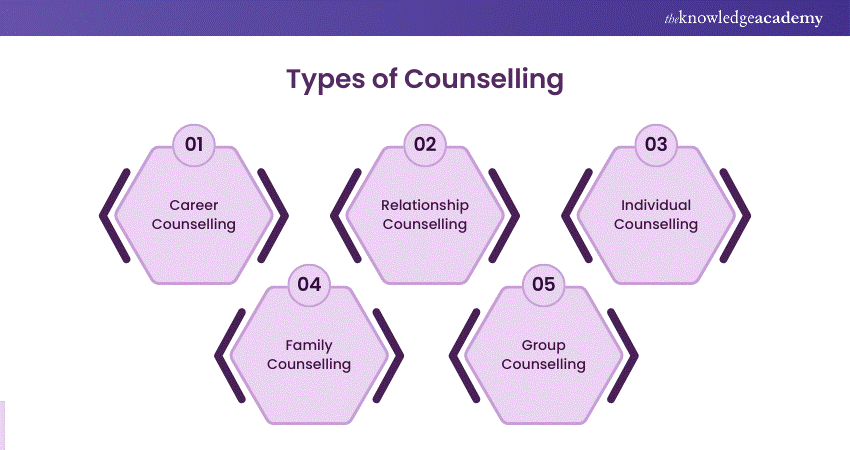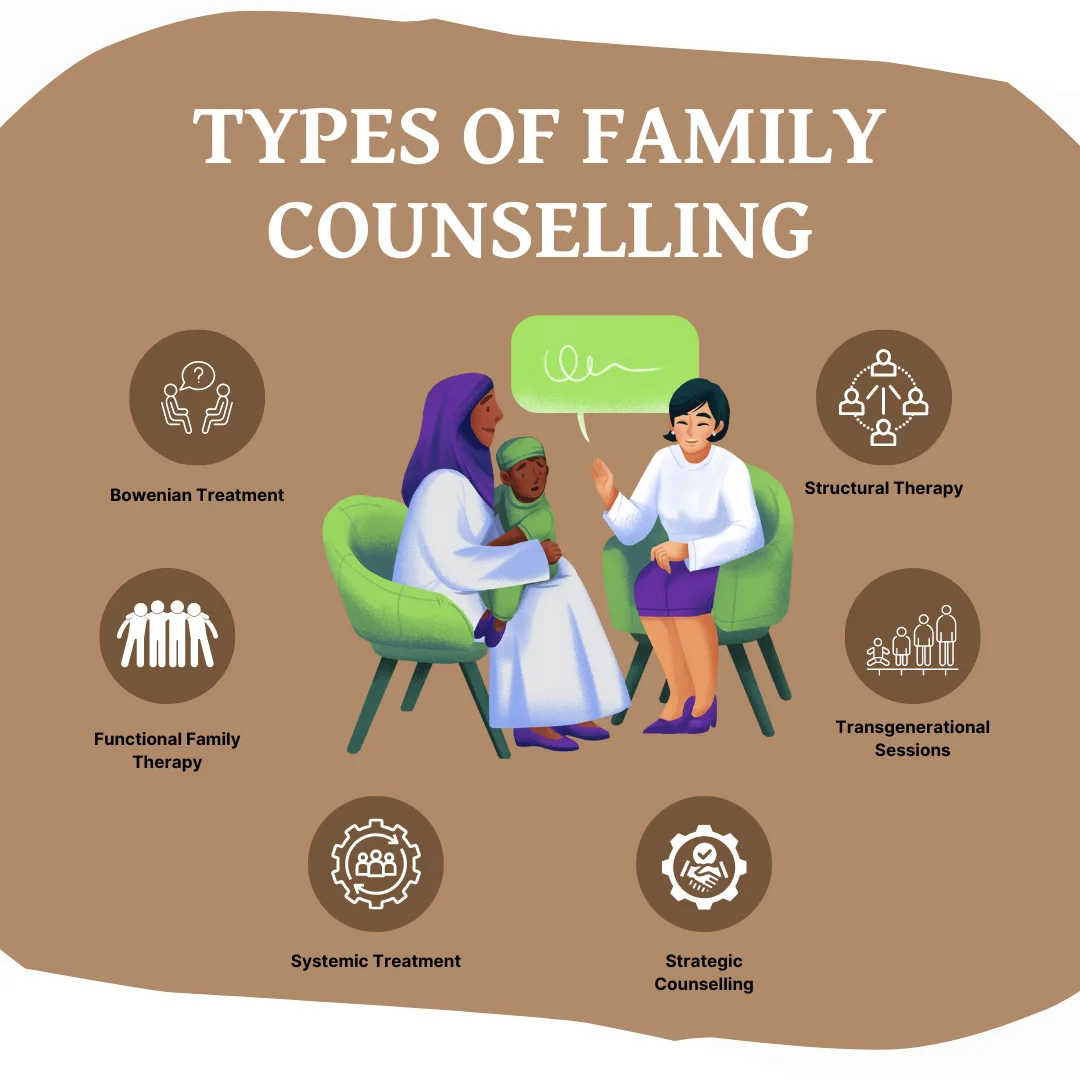A Comprehensive Guide to the Various Types of Coaching and Their Effect
Therapy encompasses a range of therapeutic techniques, each designed to satisfy unique mental health and wellness requirements. From the organized techniques of Cognitive-Behavioral Therapy to the compassionate nature of Person-Centered Treatment, these methods supply distinctive pathways to personal growth. Family therapy and Dialectical Behavior modification give added frameworks for healing, while group counseling fosters community assistance. Understanding these diverse techniques can illuminate their profound effect on private wellness. What stays to be checked out are the complexities of each approach.

Comprehending Cognitive-Behavioral Therapy (CBT)
Although several healing strategies exist, Cognitive-Behavioral Therapy (CBT) attracts attention due to its organized, ambitious nature. This form of therapy is based upon the property that ideas, feelings, and behaviors are adjoined, and by changing negative thought patterns, individuals can modify their emotional feedbacks and actions. CBT uses various strategies, such as cognitive restructuring, which assists customers determine and challenge distorted beliefs. Behavioral activation encourages involvement in pleasurable tasks to battle clinical depression.
Typically, CBT is a temporary therapy, typically enduring between 12 to 20 sessions, making it available for those seeking fast results. Its efficiency has been well-documented in dealing with anxiety conditions, anxiety, and various other psychological health and wellness problems. The specialist's duty is to guide customers with workouts and homework jobs, cultivating self-awareness and promoting lasting coping approaches. This functional approach encourages individuals to take control of their psychological health, eventually resulting in improved life fulfillment.
Checking Out Person-Centered Therapy
Person-Centered Therapy, developed by Carl Rogers, uses a contrasting strategy to Cognitive-Behavioral Therapy by emphasizing the customer's subjective experience. This restorative version prioritizes the person's perspective, cultivating an environment of compassion, unconditional positive respect, and authenticity. By enabling customers to discover their sensations and ideas without judgment, therapists promote personal growth and self-discovery.
The core tenet of Person-Centered Treatment is the idea that individuals have the inherent capability for self-healing and individual growth. In this setup, the specialist works as a supportive overview as opposed to a directive authority, motivating customers to take cost of their own trip. This technique is particularly reliable for those coming to grips with issues such as reduced self-confidence, stress and anxiety, or depression, as it empowers them to challenge and understand their emotions. Eventually, Person-Centered Therapy grows a strong healing alliance, cultivating count on and visibility essential for purposeful change.
The Duty of Family Therapy in Healing
Family members therapy works as an important part in the recovery process for people and their relationships. This healing strategy concentrates on boosting interaction, fixing conflicts, and fostering deeper links amongst family participants. By attending to inefficient dynamics, family treatment urges each participant to reveal their thoughts and feelings in a safe setting, advertising understanding and compassion.

The influence of family members therapy prolongs beyond the sessions, as boosted connections can result in improved psychological well-being for all involved. Overall, family treatment plays an essential duty in healing by fostering unity, strength, and mutual support among member of the family, ultimately leading them towards a much healthier, extra meeting life with each other.
Unloading Dialectical Behavior Modification (DBT)
Building on the foundation of healing strategies that boost psychological wellness, Dialectical Behavior modification (DBT) provides a structured structure for people fighting with intense emotions and behavior challenges. Developed by Marsha Linehan, DBT integrates cognitive-behavioral methods with mindfulness practices, intending to aid clients manage frustrating sensations and boost interpersonal effectiveness.
The treatment is especially helpful for those identified with Borderline Personality Problem however is also relevant to a series of other psychological health and wellness issues. low cost therapy. DBT includes private treatment sessions and skills training groups, concentrating on four crucial ability: mindfulness, distress tolerance, feeling guideline, and social efficiency
The Benefits of Group Coaching Sessions
While private treatment gives beneficial understandings, team counseling sessions provide distinct benefits that can greatly enhance the healing experience. One vital advantage is the feeling of community that emerges among individuals. Individuals typically discover comfort in sharing their experiences with others encountering comparable obstacles, promoting a supportive environment that lowers website feelings of seclusion.
Furthermore, team sessions motivate diverse perspectives, permitting individuals to pick up from each other's coping strategies and understandings. This cumulative knowledge can bring about enhanced problem-solving capabilities and a wider understanding of individual concerns.
In addition, team therapy typically advertises accountability, as participants motivate each other to pursue their objectives and stick to their dedications. The cost-effectiveness of group therapy makes it an easily accessible option for several people looking for assistance. On the whole, the joint nature of group counseling sessions can considerably enrich the therapeutic trip.
Often Asked Concerns
What Certifications Do Specialists Required to Exercise Therapy?
Therapists normally need an appropriate degree in psychology or therapy, in addition to monitored medical experience. Additionally, they must get appropriate licensure or accreditation to practice legitimately, making certain adherence to expert requirements and ethical standards.
Exactly how Do I Choose the Right Sort Of Therapy for Me?
Choosing the appropriate sort of therapy entails examining personal demands, checking out various strategies, thinking about therapist specializeds, and seeking referrals. Comprehending specific goals and choices can considerably enhance the performance and fulfillment of the therapeutic experience.

Are Online Counseling Sessions as Effective as In-Person Ones?
The performance of on the internet therapy sessions contrasted to in-person ones frequently relies on private choices and situations. Research suggests that both methods can produce favorable results, though some might discover better comfort in face-to-face interactions.
How Much Time Does Therapy Generally Last?

What Should I Anticipate Throughout My Initial Counseling Session?
Throughout the very first counseling session, customers can expect an intro, conversation of their concerns, establishment of goals, and an overview of the counseling process - couples counselling. This initial meeting aims to build connection and assurance convenience